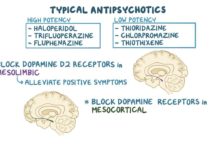Vestibular neuritis occurs when the nerve in the inner ear becomes inflamed, causing sudden, severe vertigo (a feeling of spinning or motion). It's usually caused by a viral infection, which then triggers swelling in the vestibulocochlear nerve — the same nerve that's responsible for relaying information about balance and head movement to the brain.
Causes and Risk Factors of Vestibular Neuritis
Vestibular neuritis is thought to develop when a person catches a viral infection such as measles, mumps, or hepatitis. (The herpes virus, which causes cold sores or chickenpox and shingles, has also been associated with vestibular neuritis.)
Duration of Vestibular Neuritis
The most severe symptoms of vestibular neuritis — like intense vertigo and dizziness — only last a few days. But for many people, the recovery process is gradual, and it can take about three weeks for the symptoms to fully fade away.
Complications of Vestibular Neuritis
Related Conditions and Causes of Vestibular Neuritis
Resources We Love
VeDA (Vestibular Disorders Association)
VeDA is a nonprofit organization that seeks to educate the public about vestibular disorders and connect patients with doctors who can diagnose and treat the conditions.
Additional reporting by Ingrid Strauch.
Editorial Sources and Fact-Checking
- Vestibular Neuritis. Cleveland Clinic. May 31, 2019.
- Labyrinthitis and Vestibular Neuritis. Vestibular Disorders Association (VeDA).
- Vestibular Neuronitis. StatPearls. July 10, 2020.
- Vestibular Neuritis. Seminars in Neurology. 2009.
- Balance Problems. Mayo Clinic. June 18, 2020.
- Vestibular Neuronitis. Merck Manual. June 2020.













































